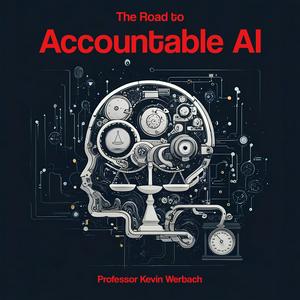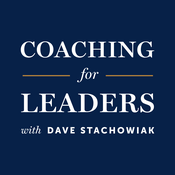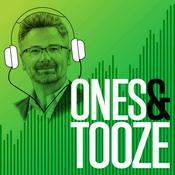57 episódios
- Alexandru Voica, Head of Corporate Affairs and Policy at Synthesia, discusses how the world's largest enterprise AI video platform has approached trust and safety from day one. He explains Synthesia's "three C's" framework—consent, control, and collaboration: never creating digital replicas without explicit permission, moderating every video before rendering, and engaging with policymakers to shape practical regulation. Voica acknowledges these safeguards have cost some business, but argues that for enterprise sales, trust is competitively essential. The company's content moderation has evolved from simple keyword detection to sophisticated LLM-based analysis, recently withstanding a rigorous public red team test organized by NIST and Humane Intelligence.
Voica criticizes the EU AI Act's approach of regulating how AI systems are built rather than focusing on harmful outcomes, noting that smaller models can now match frontier capabilities while evading compute-threshold regulations. He points to the UK's outcome-focused approach—like criminalizing non-consensual deepfake pornography—as more effective. On adoption, Voica argues that AI companies should submit to rigorous third-party audits using ISO standards rather than publishing philosophical position papers—the thesis of his essay "Audits, Not Essays." The conversation closes personally: growing up in 1990s Romania with rare access to English tutoring, Voica sees AI-powered personalized education as a transformative opportunity to democratize learning.
Alexandru Voica is the Head of Corporate Affairs and Policy at Synthesia, the UK's largest generative AI company and the world's leading AI video platform. He has worked in the technology industry for over 15 years, holding public affairs and engineering roles at Meta, NetEase, Ocado, and Arm. Voica holds an MSc in Computer Science from the Sant'Anna School of Advanced Studies and serves as an advisor to MBZUAI, the world's first AI university.
Transcript
Audits, Not Essays: How to Win Trust for Enterprise AI (Transformer)
Synthesia's Content Moderation Systems Withstand Rigorous NIST, Humane Intelligence Red Team Test (Synthesia)
Computerspeak Newsletter - In this episode, Blake Hall, CEO of ID.me, discusses the massive escalation in online fraud driven by generative AI, noting that attacks have evolved from "Nigerian prince" scams to sophisticated, scalable social engineering campaigns that threaten even the most digital-savvy users. He explains that traditional knowledge-based verification methods are now obsolete due to data breaches, shifting the security battleground to biometric and possession-based verification. Hall details how his company uses advanced techniques—like analyzing light refraction on skin versus screens—to detect deepfakes, while emphasizing a "best of breed" approach that relies on government-tested vendors.
Beyond the threats, Hall outlines a positive vision for a digital wallet that functions as a user-controlled "digital twin," allowing individuals to share only necessary data (tokenized identity) rather than overexposing personal information. He argues that government agencies must play a stronger role in validating core identity attributes to stop synthetic fraud and suggests that future AI "agents" will rely on cryptographically signed credentials to act on our behalf securely. Ultimately, he advocates for a model where companies "sell trust, not data," empowering users to control their own digital identity across finance, healthcare, and government services.
Blake Hall is the Co-Founder and CEO of ID.me, a digital identity network with over 150 million members that simplifies how individuals prove and share their identity online. A former U.S. Army Ranger, Hall led a reconnaissance platoon in Iraq and was awarded two Bronze Stars, including one for valor, before earning his MBA from Harvard Business School. He has been recognized as CEO of the Year by One World Identity and an Entrepreneur of the Year by Ernst & Young for his work in pioneering secure, user-centric digital identity solutions.
Transcript
He Once Hunted Terrorists in Iraq. Now He Runs a $2 Billion Identity Verification Company (Inc., November 11, 2025)
"No Identity Left Behind": How Identity Verification Can Improve Digital Equity (ID.me) - Legendary entrepreneur and investor Mitch Kapor draws on his decades of experience to argue that while AI represents a massive wave of disruptive innovation, it also represents an opportunity to avoid mistakes made with social media and the early internet. In this episode, he contends that technologists tend toward over-optimism about technology solving human problems while underestimating downsides. Self-regulation by large AI companies like OpenAI and Anthropic is likely to fail, he suggests, because incentives to aggregate power and wealth are too strong, requiring external pressure and oversight. Kapor explains that his responsible investing approach at his venture capital firm, Kapor Capital, focuses on gap-closing rather than diversity for its own sake, funding startups that address structural inequalities in access, opportunity, or outcomes, regardless of founder demographics. He discusses the Humanity AI initiative and argues that philanthropy needs to develop AI literacy and technical capacity, with some foundations hiring chief technology officers to effectively engage with these issues. He believes targeted interventions can create meaningful change without matching the massive investments of the major AI labs. Kapor expresses hope that a younger generation of leaders in tech and philanthropy can step up to make positive differences, emphasizing that his generation should empower them rather than occupying seats at the table.
Mitch Kapor is a pioneering technology entrepreneur, investor, and philanthropist who founded Lotus Development Corporation and created Lotus 1-2-3, the breakthrough spreadsheet software that helped establish the PC software industry in the 1980s. He co-founded the Electronic Frontier Foundation to advocate for digital rights and civil liberties, and later established Kapor Capital with his wife Freada Kapor Klein to invest in startups that close gaps of access, opportunity, and outcome for underrepresented communities. Kapor recently completed a masters degree at the MIT Sloan School focused on gap-closing investing, returning to finish what he started 45 years earlier when he left MIT to pursue his career in Silicon Valley. He serves on the steering committee of Humanity AI, a $500 million initiative to ensure AI benefits society broadly. - Former Congressman and Pentagon official Brad Carson discusses his organization, Americans for Responsible Innovation (ARI), which seeks to bridge the gap between immediate AI harms like and catastrophic safety risks, while bringing deep Capitol Hill expertise to the AI conversation . He argues that unlike previous innovations such as electricity or the automobile, AI has been deeply unpopular with the public from the start, creating a rare bipartisan alignment among those skeptical of its power and impacts. This creates openings for productive discussions about AI policy. Drawing on his military experience, Carson suggests that while AI will shorten the kill chain, it won't fundamentally change the human nature of warfare, and he warns against the US military's tendency to seek technical solutions to human problems . The conversation covers current policy debates, highlighting the necessity of regulating the design of models rather than just their deployment, and the importance of export controls to maintain the West's advantage in compute . Ultimately, Carson emphasizes that for AI to succeed politically, the "bounty" of this technology must be shared broadly to avoid tearing apart the social fabric
Brad Carson is the founder and president of Americans for Responsible Innovation (ARI), an organization dedicated to lobbying for policy that ensures artificial intelligence benefits the public interest. A former Rhodes Scholar, Carson has had a diverse career in public service, having served as a U.S. Congressman from Oklahoma, the Undersecretary of the Army, and the acting Undersecretary of Defense for Personnel and Readiness . He also served as a university president and deployed to Iraq in 2008 .
Transcript
Former TU President Brad Carson Pushes for Strong AI Guardrails - Oliver Patel has built a sizeable online following for his social media posts and Substack about enterprise AI governance, using clever acronyms and visual frameworks to distill down insights based on his experience at AstraZeneca, a major global pharmaceutical company. In this episode, he details his career journey from academic theory to government policy and now practical application, and offers insights for those new to the field. He argues that effective enterprise AI governance requires being pragmatic and picking your battles, since the role isn't to stop AI adoption but to enable organizations to adopt it safely and responsibly at speed and scale. He notes that core pillars of modern AI governance, such as AI literacy, risk classification, and maintaining an AI inventory, are incorporated into the EU AI Act and thus essential for compliance. Looking forward, Patel identifies AI democratization—how to govern AI when everyone in the workforce can use and build it—as the biggest hurdle, and offers thougths about how enteprises can respond.
Oliver Patel is the Head of Enterprise AI Governance at AstraZeneca. Before moving into the corporate sector, he worked for the UK government as Head of Inbound Data Flows, where he focused on data policy and international data transfers, and was a researcher at University College London. He serves as an IAPP Faculty Member and a member of the OECD's Expert Group on AI Risk. His forthcoming book, Fundamentals of AI Governance, will be released in early 2026.
Transcript
Enterprise AI Governance Substack
Top 10 Challenges for AI Governance Leaders in 2025 (Part 1)
Fundamentals of AI Governance book page
Mais podcasts de Negócios
Podcasts em tendência em Negócios
Sobre The Road to Accountable AI
Artificial intelligence is changing business, and the world. How can you navigate through the hype to understand AI's true potential, and the ways it can be implemented effectively, responsibly, and safely? Wharton Professor and Chair of Legal Studies and Business Ethics Kevin Werbach has analyzed emerging technologies for thirty years, and created one of the first business school course on legal and ethical considerations of AI in 2016. He interviews the experts and executives building accountable AI systems in the real world, today.
Site de podcastOuça The Road to Accountable AI, G4 Podcasts e muitos outros podcasts de todo o mundo com o aplicativo o radio.net

Obtenha o aplicativo gratuito radio.net
- Guardar rádios e podcasts favoritos
- Transmissão via Wi-Fi ou Bluetooth
- Carplay & Android Audo compatìvel
- E ainda mais funções
Obtenha o aplicativo gratuito radio.net
- Guardar rádios e podcasts favoritos
- Transmissão via Wi-Fi ou Bluetooth
- Carplay & Android Audo compatìvel
- E ainda mais funções


The Road to Accountable AI
Leia o código,
baixe o aplicativo,
ouça.
baixe o aplicativo,
ouça.







































